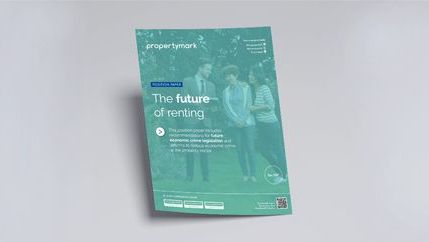
The measures will form part of the Renters Reform Bill that was announced in the Queen’s Speech and will be introduced into Parliament later in 2022.
In a major reset of power between tenants and landlords, residents will be able to demand information and rate their landlord as part of new satisfaction measures.
Levelling Up
It is part of the Department for Levelling Up, Housing and Communities (DLUHC) wider reform agenda to improve lives and level up the country. However, DLUHC states whilst most private rented homes are of good quality, offering safe, comfortable accommodation, the conditions of more than half a million properties – or 12 per cent of households which pose an imminent risk to tenants’ health and safety, means around 1.6 million people are living in dangerously low-quality homes, driving up costs for our health service.
So, to punish the 88 per cent of decent landlords providing good quality accommodation, the UK Government, has shaken up the PRS in an attempt to force up the quality of accommodation offered by rogue landlords.
This ‘New Deal’ for tenants will now extend the Decent Homes Standard to the private sector for the first time. In early June 2022, the UK Government introduced the Social Housing Regulation Bill, which means failing social housing landlords could face unlimited fines and Ofsted-style inspections.
Section 21 banned
So-called ‘no fault’ Section 21 evictions – that allow landlords to terminate tenancies without giving any reason - will be outlawed.
No blanket ban for renting with pets
Tenants will be given the right to request a pet in their house, which the landlord must consider and cannot unreasonably refuse.
Arbitrary rent review clauses
Designed to give tenants stronger powers to challenge poor practice, arbitrary rent review clauses will cease, this includes unjustified rent increases and will enable tenants to be repaid rent for non-decent homes.
Families with children and those on benefits
It will be illegal for landlords or agents to have blanket bans on renting to families with children or those in receipt of benefits.
A positive for landlords
A new Private Renters’ Ombudsman will be created to enable disputes between private renters and landlords to be settled quickly, at low cost, and without going to court. This will ensure landlords can gain possession of their properties efficiently from anti-social tenants and can sell their properties when they need to.
Other measures:
- A new property portal will be introduced that will provide a single front door to help landlords to understand, and comply with, their responsibilities as well as give councils and tenants the information they need to tackle rogue operators
- Outlawing blanket bans on renting to families with children or those in receipt of benefits
- All tenants are to be moved onto a single system of periodic tenancies, meaning they can leave poor quality housing without remaining liable for the rent or move more easily when their circumstances change. A tenancy will only end if a tenant ends or a landlord has a valid reason, as defined in law
- Doubling notice periods for rent increases and giving tenants stronger powers to challenge them if they are unjustified
- Local Councils will have stronger powers to tackle the worst offenders, backed by enforcement pilots, and increasing fines for serious offences
The future
After waiting three years to see exactly what this reform will look like, there are some elements that will not be balanced under the current proposals. Is it an equitable system if a tenant can simply end a tenancy at a time of their choosing, but an agent or landlord must present a valid reason that is defined in law?
Propertymark has already set out broadly what we think reform should look like in our The Future of Renting paper, providing evidence of a shrinking PRS.
- The number of properties available to rent through letting agents halved in the month of March between 2019 and 2022
- During the same four-year period, 94 per cent of landlords who removed their property from the rental market did so to sell it
- Over half of rental properties sold in March this year alone did not return to the private rented market
The Future of Renting
The Future of Renting features our recommendations to the UK Government and its plans to reform the private rented sector in England. We want to help shape and influence the UK Government’s Renters’ Reforms White Paper which is due to be released in 2022.
We will be closely scrutinising the new White Paper and working with Ministers to help them understand how on a practical level it will impact our letting agent members and their landlords.






